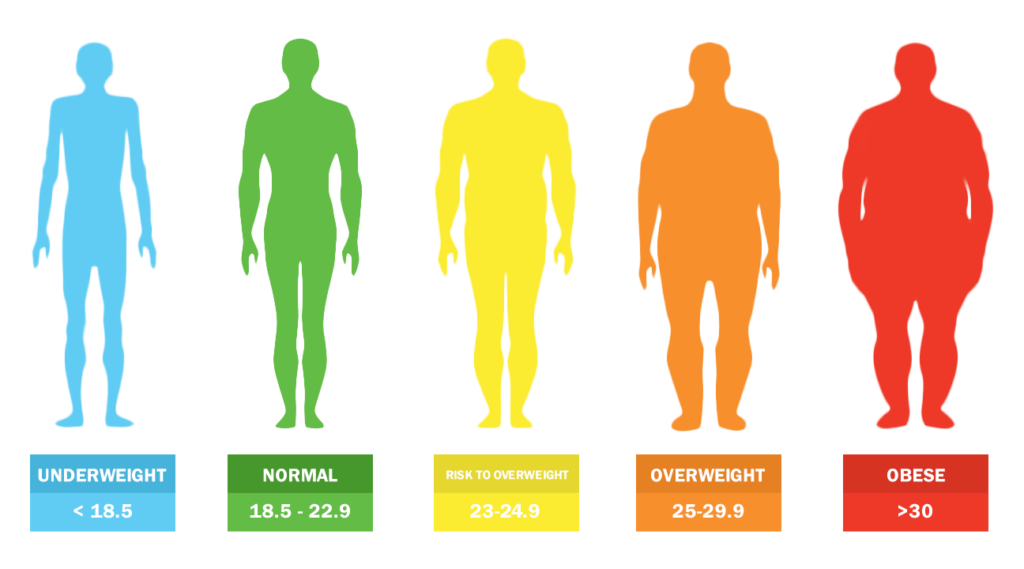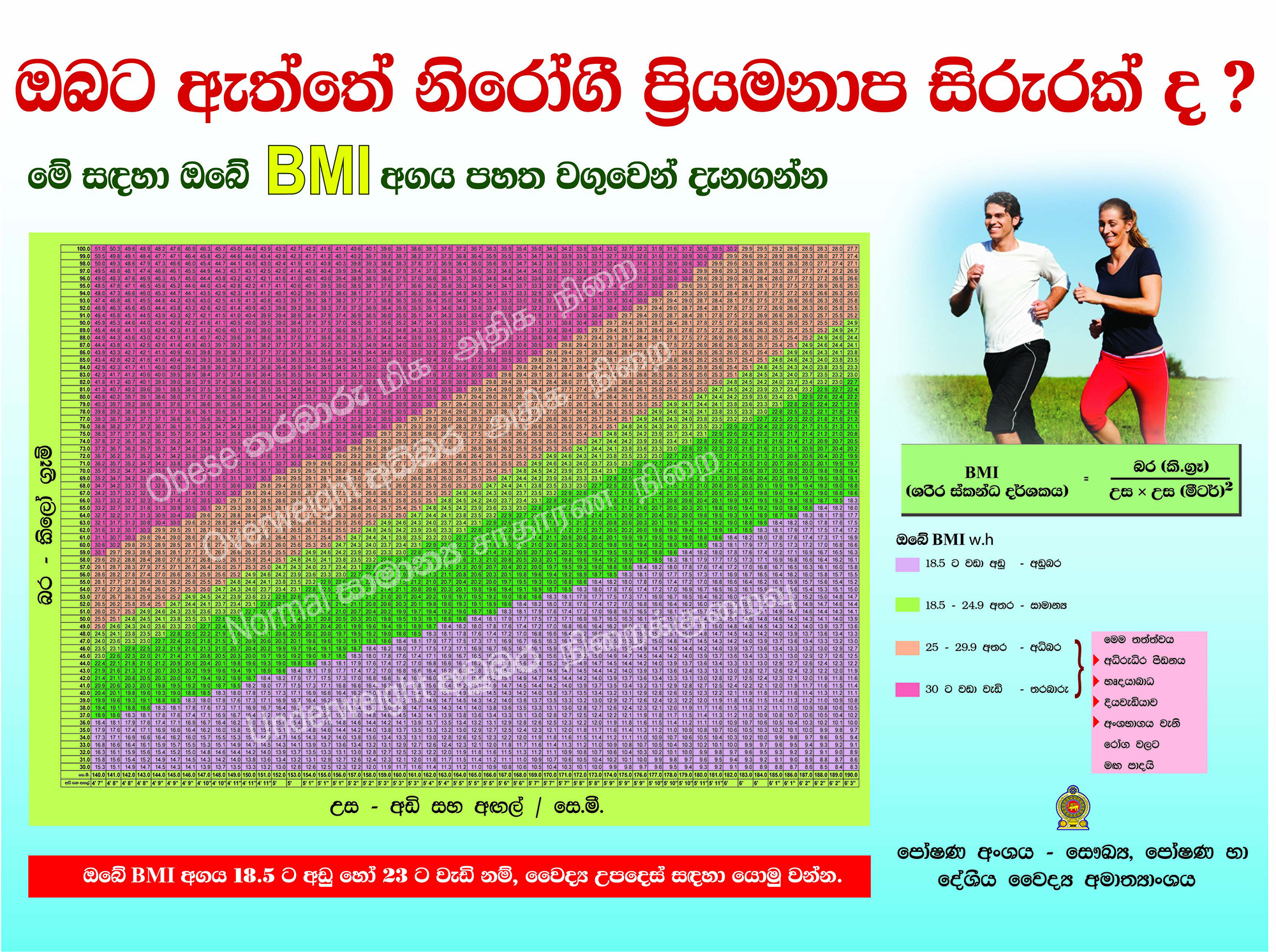Body mass index (BMI)
The body mass index (BMI) is a measure that uses your height and weight to work out whether your weight is healthy.

BMI is calculated by dividing an adults’s weight in kilograms by their height in meters squared. For example, A BMI of 25 means 25kg/m2.
BMI Categories:
Underweight = <18.5 kg/m2 (your body is less than the normal recommended weight. you need to eat more nutritious food with adequate exercises. Read more)
Normal weight = 18.5 kg/m2 – 22.9 kg/m2 (Your weight is within the normal recommended weight. Maintain your weight with adequate exercises. Read more.)
Risk to overweight= 23 kg/m2 – 24.9 kg/m2 (Your weight is within the normal recommended weight. Try to bring down it with more exercises and correct dietary practices. Read more.)
Overweight = 25 kg/m2 – 29.9 kg/m2 (Your weight is more than the normal recommended weight. Bring down it with more exercises and correct dietary practices. Read more)
Obesity = BMI of 30 kg/m2 or greater (Your weight is very much higher than the normal recommended weight and is a risk factor for many other diseases like diabetes and heart diseases. Bring down it with more exercises, correct dietary practices and medical advices. Read more)
What is the body mass index (BMI)?
The body mass index (BMI) is a measure that uses your height and weight to work out whether your weight is healthy. BMI is calculated by dividing an adults’s weight in kilograms by their height in meters squared. For example, A BMI of 25 means 25kg/m2. Read More


